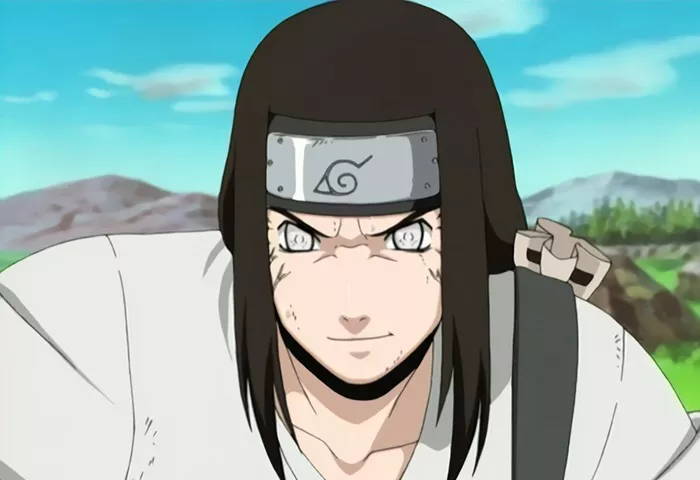In the Naruto franchise, Neji Hyuga often stands out as a character filled with wisdom, yet many fans overlook the depth of his insight. Despite his age and experience, Neji is consistently portrayed as one of the most thoughtful and profound characters in the series. As the Hyuga Clan’s prodigy, his Byakugan was among the most advanced of its kind, rivaling even the famed Uchiha Clan’s Sharingan. However, despite his exceptional vision, Neji’s future was limited by a fate he couldn’t see—until Naruto Uzumaki changed his perspective.
One of Neji’s most significant moments occurs when he tells Naruto, “You have better eyes than me.” This line, while seemingly simple, reflects Neji’s realization that Naruto could see beyond the current circumstances of the shinobi world. It also marks Neji’s growth and recognition that Naruto had the potential to break the cycle of hatred that dominated their world. Neji’s acknowledgment of Naruto’s foresight, despite his own talent and status, demonstrates the humility and depth of understanding that set him apart.
Fatalism and Neji’s Limited Vision
Neji’s tragic backstory as a member of the Hyuga Clan’s branch house shaped his worldview. Though blessed with the powerful Byakugan, Neji’s vision was clouded by fatalism—he believed he was forever bound by the limitations of his birth. This outlook, fostered by the rigid hierarchy within the Hyuga Clan, blinded him to possibilities beyond his resentment toward the main house. The curse mark placed on branch members, including Neji, kept him tethered to a sense of hopelessness.
Though a prodigy, Neji’s perception was narrow. His bitterness, stemming from his father’s death and the unfair treatment by the Hyuga Clan, prevented him from seeing a future where he could rise above his circumstances. He was consumed by the belief that his fate was sealed. It wasn’t until Naruto challenged his worldview that Neji began to understand that one’s destiny isn’t fixed—that through effort and perseverance, he could transcend the boundaries placed upon him.
Naruto’s Nindo vs. The Shinobi World’s Hypocrisy
Naruto’s philosophy, his “nindo” or ninja way, emphasized never giving up and staying true to one’s word, no matter the odds. This mindset directly opposed the cynical reality of the shinobi world, where power struggles, control, and survival often outweighed ideals like compassion and loyalty. The Hidden Leaf Village’s “Will of Fire” doctrine, which preached protecting the next generation, was undercut by events like the Uchiha Massacre and the Hyuga Clan’s brutal control over its branch families.
For Neji, who had suffered under this system, Naruto’s optimism seemed naive at first. But through Naruto’s actions—his relentless efforts to save his friends, his refusal to give in to hatred—Neji began to see that Naruto’s belief in a better world wasn’t just empty talk. Naruto’s unwavering commitment to his ideals, even when the shinobi world had rejected him, inspired Neji to change not only himself but also his clan.
Neji’s Transformation Through Naruto’s Influence
The turning point in Neji’s character comes when he starts to recognize that Naruto, despite lacking the prestigious background and natural talent of others, possessed something more valuable: a vision for a better future. Naruto’s determination to break the cycle of hatred resonated with Neji, who had been trapped in his own cycle of bitterness and resignation. In admitting that Naruto had “better eyes,” Neji was acknowledging Naruto’s ability to see what he himself had been blind to—hope.
Naruto’s fight to save Sasuke Uchiha, even when the village was ready to abandon him, was a testament to Naruto’s belief that no one was beyond redemption. This willingness to fight for a friend, despite overwhelming odds, was what finally broke through Neji’s cynicism. Naruto’s strength didn’t come from raw power, but from his ability to see goodness in others and his refusal to give up on them, no matter how dark their path.
Naruto’s Vision of a Brighter Future
In a world filled with war, pain, and betrayal, Naruto’s ability to envision a future where peace was possible set him apart. Neji, who had lived in the shadow of despair for so long, came to respect this ability more than any other. His realization that Naruto’s vision extended far beyond the confines of the shinobi world was profound, as it spoke to the very heart of the series’ themes.
Naruto’s unyielding optimism and belief in the power of perseverance allowed him to challenge the established order of the shinobi world. His ability to see potential in even the darkest of situations, and his commitment to bringing out the best in others, inspired characters like Neji to believe that they too could change their fate. Neji’s acknowledgment of Naruto’s superior “eyes” was a recognition of the young ninja’s ability to see what others couldn’t—a brighter, more hopeful future.
Conclusion
While often overlooked, Neji’s line to Naruto holds significant weight within the broader narrative of Naruto. It symbolizes Neji’s acceptance of a new way of thinking, one not bound by the past or by the constraints of clan politics. By recognizing Naruto’s vision, Neji was able to rise above his own limitations and see a path forward for himself and his clan.
Ultimately, Neji’s transformation serves as a testament to Naruto’s influence on those around him. It’s not just through his words, but through his actions and unwavering belief in a better future, that Naruto changes the lives of his comrades. Neji’s acknowledgment of Naruto’s vision is a powerful reminder of the impact that hope and perseverance can have, even in the most difficult of circumstances.

